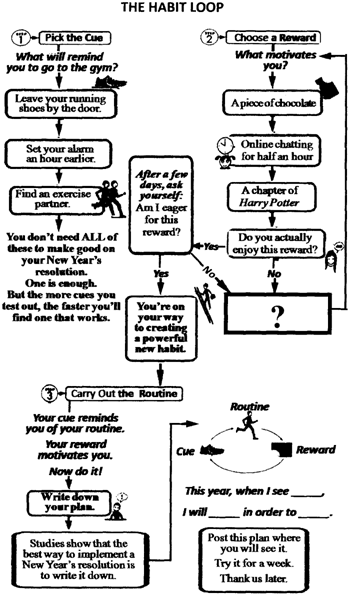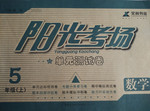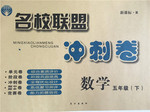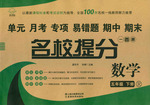题目内容
17. The language used by scientists to explain complex ideas can be difficult and sometimes even boring.The language,with its Latin words and long scientific terms,could be one reason some people avoid learning about science,especially children.
The language used by scientists to explain complex ideas can be difficult and sometimes even boring.The language,with its Latin words and long scientific terms,could be one reason some people avoid learning about science,especially children.American Danielle Dixon is a marine biologist.She wants to make science fun for children.Dixon has turned that idea into a series of children's books.The nine books are written so that her research is easy to understand.
"I just don't really think kids should be left out of it and I thought that story books may be one of the easiest ways to sort of captivate them and have them understand."
Danielle Dixon is an assistant professor at the University of Delaware.Dixon says another goal of her science writing is to help increase understanding of the ocean environment.
She spent almost two years in the South Pacific working on her post-doctoral research.She went to the island nation of Fiji to investigate coral reefs that are collapsing or,as she says,degrading.
The goal of her research is to identify why some healthy coral reefs are breaking down.She also wants to find out how this degradation affects fish that live in and around the reefs.
"A number of the reefs are converting from being,you know,these beautiful coral reef systems that have a lot of holes for animals to hide in,into reefs that the coral's degrading and collapsing and then there is not as much hiding spaces for fishes and things like that."
Early in her research,Dixon made some videos for people in Fiji.The videos explained her work to the local community.She says she wanted them to understand how her research would help them.
For the local children,Dixon started making books explaining her work.This helped to keep them from walking through her"laboratory"-baby pools filled with water she was using for her experiments."I was living,actually,in the village with some of the locals.It was a lot easier to get research done if they understood what I was doing and how it would help them.And one of the ways that I was able to connect with the adults was I would make these videos for them.And then I started making children's books for the kids so that they would have a better idea of why I was there,so that when I ask them not to walk through the baby pools I was using for experiments or something like that,that that would actually happen."she added.
When Dixon returned to the United States,she started doing the same thing for children in this country.She uses colorful story books to capture the imagination of children.While she has their attention,she provides very useful information about science.
As a marine scientist,Dixon wants her stories to be both educational and inspirational,serving as an agent for change.She also includes in her books"a call to action,"asking readers what they can do to make a difference.
"One of the things I do in those story books is I have a last page.And the last page talks about what you can do to help.You know,there is a lot of things that even a 6-year-old is able to do,whether it's shutting your lights off when you leave a room,or riding your bike to your friend's house instead of having your parents drive you.There is a lot of stuff that they can do and still feel they're making a difference."
Danielle Dixon's books shine a light on the environmental problems facing our world's oceans.They also make science fun and understandable for children.But her books may have an unintended consequence,something she may not have planned on.
59.What may lead to people's negative attitude toward science learning?C
A.The language can't explain scientific ideas clearly.
B.Scientists are always boring and difficult to communicate with.
C.The language usually contains complicated words and terms.
D.People don't need to understand science at all.
60.Which of the following may be the purpose of Dixon's science writing?B
A.To make the record of her research.
B.To make people aware of ocean environment
C.To raise money for her research
D.To warn people of dangerous ocean lives.
61.What can we infer from Dixon's research on coral reefs in Fiji?B
A.She's targeted at breaking down unhealthy coral reefs.
B.Coral reefs can shelter many fishes around.
C.The videos she made served the local community well.
D.Children there helped her a lot to accomplish books.
62.What may be the title of the passage?A
A.You Reap What You Sow
B.Unity Is Strength
C.Haste Makes Waste
D.Circumstances Alter Cases.
分析 文章主要介绍美国的海洋生物学家Dixson通过保护珊瑚礁的过程将科学变得生动有趣并通过她所撰写的书籍让人们尤其是孩子们参与到科学中.
解答 59.C.细节理解题.根据文章第一段"The language used by scientists to explain complex ideas can be difficult and sometimes even boring.The language,with its Latin words and long scientific terms,could be one reason some people avoid learning about science,especially children"科学家用来解释复杂想法的语言可能是困难的,有时甚至是枯燥的,用拉丁语和长科学术语的语言可能是一些人避免学习科学的原因之一,尤其是儿童;可知语言通常包含复杂的词和术语会导致人们对科学学习的消极态度;故选C.
60.B.细节理解题 依据文章第二段中的"The nine books are written so that her research is easy to understand."以及第四段中的"another goal of her science writing is to help increase understanding of the ocean environment."可知她写书的目的是使得科学知识便于理解以及能增加人们对海洋环境的理解,故选B.
61.B.推理判断题 依据文章第七段中的"these beautiful coral reef systems that have a lot of holes for animals to hide in"可以判断出B项内容正确;她的研究目的是找出珊瑚礁分解的原因并找出对鱼类的影响,故A项错误;依据文章细节可知她做视频是为了能更好地完成她的研究并且写书的目的是让孩子们更好地了解她的工作,故C项和D项错误;故选B.
62.A.标题归纳题 文章主要介绍美国的海洋生物学家Dixson通过保护珊瑚礁的过程将科学变得生动有趣并通过她所撰写的书籍让人们尤其是孩子们参与到科学中,A项表示"一份耕耘,一份收获",即付出得到回报与文章大意相符;B项是"团结就是力量";C项表示"欲速则不达";D项表示"具体情况具体分析";故选A.
点评 考察学生的细节理解和推理判断能力,做细节理解题时一定要找到文章中的原句,和题干进行比较,再做出正确的选择.在做推理判断题不要以个人的主观想象代替文章的事实,要根据文章事实进行合乎逻辑的推理判断.

 阳光考场单元测试卷系列答案
阳光考场单元测试卷系列答案 名校联盟冲刺卷系列答案
名校联盟冲刺卷系列答案 名校提分一卷通系列答案
名校提分一卷通系列答案| A. | is washing away | B. | is being washed away | ||
| C. | are washing away | D. | are being washed away |
| A. | secure | B. | confident | C. | grateful | D. | innocent |